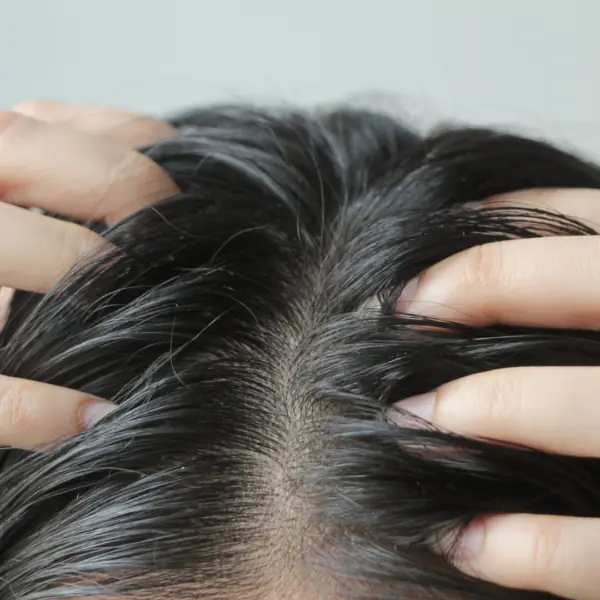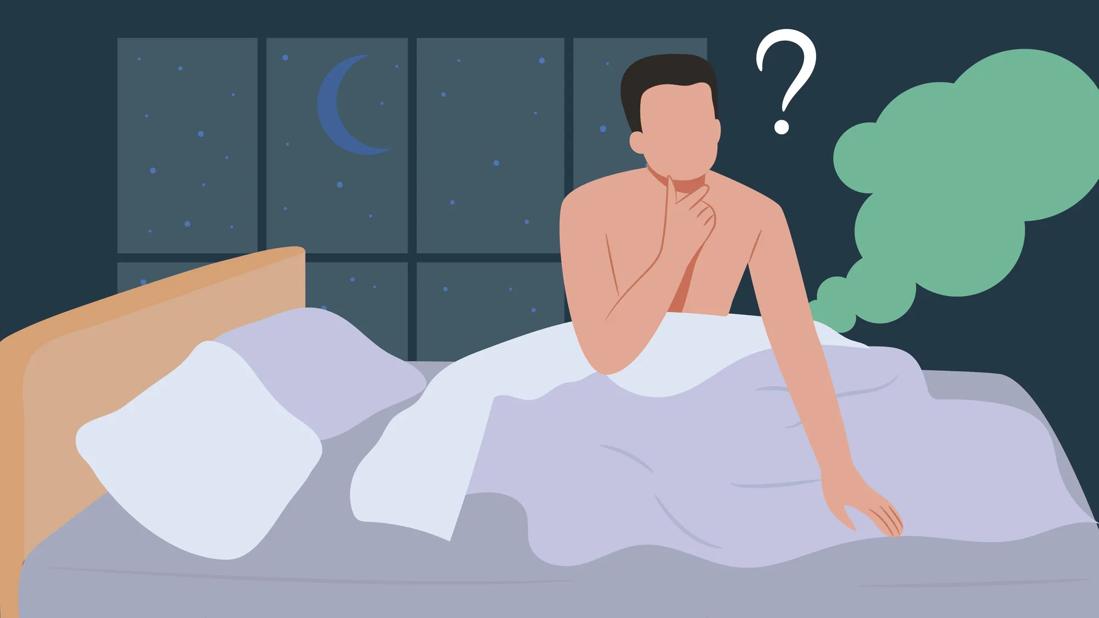
Farting Too Much at Night: Here’s What It Might Mean
Farting Too Much at Night: Here’s What It Might Mean
Waking up to excessive gas at night can be uncomfortable and embarrassing. While it's often a normal part of digestion, it can sometimes feel like a nuisance. Understanding the common causes behind nighttime gas can help you find a solution and get a more restful sleep.
Why It Happens at Night
During the day, our bodies are active and we have more distractions, which can lead us to subconsciously hold in gas. At night, as your body relaxes, your anal sphincter also relaxes, allowing built-up gas to be released more freely. In short, all the gas your body produces throughout the day gets released while you sleep.
Common Causes
-
Your Diet: The foods you eat are the biggest factor. Gas is produced when the bacteria in your gut ferment undigested carbohydrates. Foods that are high in fiber or difficult to digest are common culprits. These include:
-
Beans, lentils, and high-fiber grains.
-
Cruciferous vegetables like broccoli, cauliflower, and cabbage.
-
Onions and garlic.
-
Dairy products.
-
-
Swallowed Air: You might be swallowing air throughout the day without even realizing it. This can be caused by:
-
Chewing gum.
-
Drinking through a straw.
-
Talking while you eat.
-
Smoking.
-
Carbonated drinks, which add gas directly to your digestive system.
-
-
Digestive Conditions: In some cases, excessive gas can be a symptom of an underlying medical condition. These include:
-
Food intolerances like lactose or fructose malabsorption.
-
Irritable Bowel Syndrome (IBS) or Small Intestinal Bacterial Overgrowth (SIBO).
-
Constipation, which can cause food to ferment in your gut for longer periods.
-
Smart Strategies to Quiet the Night
Making a few simple changes to your habits can significantly reduce nighttime gas.
-
Eat Dinner Earlier: Finish your last meal at least two to three hours before bed. This gives your body enough time to digest your food and release gas before you lie down to sleep.
-
Track Your Triggers: Keep a food diary to identify which foods cause you the most gas. This can help you make more informed dietary choices.
-
Change Your Sleep Position: Try sleeping on your left side. This position can help gas pass more smoothly through your digestive tract.
-
Use Over-the-Counter Helpers: Products like simethicone (Gas-X), alpha-galactosidase (Beano), or lactase enzymes can help break down gas-producing foods and reduce bloating.
-
Manage Stress: Stress can impact your digestive system. Practicing relaxation techniques can support the release of digestive enzymes and improve gut function.
When to See a Doctor
While nighttime gas is usually a normal and harmless process, you should consult a doctor if it is sudden, unusually smelly, or accompanied by other symptoms like pain, bloating, diarrhea, or constipation. A healthcare professional can help you rule out or manage any underlying conditions.
News in the same category


Mix Bananas, Honey and Water: Cough and Bronchitis Will Disappear

Forget 10,000 steps: Scientists prove 7000 steps gives you ‘almost identical’ life-saving benefits

What Is Sleep Talking?

What Foamy Urine Might Be Trying to Tell You

What Sleeping with Your Arms Crossed Really Says About You

How to Kill the Bacteria Causing Heartburn and Bloating

The Hidden Warning Signs of Iron Deficiency—and How to Fix It

Beat a Sinus Infection Fast with These Natural Remedies

What Happens To Your Blood Pressure When You Eat Bananas

Why Your Hands Go Numb While You Sleep

Reason For Spots On Hands

Here Is What Your Poop Says About Your Health

3 powerful vegetables everyone overlooks (but shouldn’t!)

4 hidden signs of iodine deficiency in your skin, hair & nails

The Most Effective Natural Way to Remove Gallstones

Causes of Early Graying You Never Suspected

That Persistent Scalp Itch

That Random Stabbing Pain in Your Chest Has Finally Been Explained
News Post

Keep a garlic bulb by your bedside—the ‘golden’ benefits will make anyone want to try it

Throwing away coffee grounds is like throwing away money—these uses for coffee grounds are things every household needs

Soak yellowed pillow inserts in this, and no matter how dirty they are, they’ll come out bright and clean like new

Your unexplained fatigue and bloating could be intestinal parasites feeding off you right now

Mix Bananas, Honey and Water: Cough and Bronchitis Will Disappear

Forget 10,000 steps: Scientists prove 7000 steps gives you ‘almost identical’ life-saving benefits

What Is Sleep Talking?

Dandelion roots are the most important part of the plant

Why Is It Not Recommended To Hang Out The Clothes Outside

9 Things About Bledo Blanco (Amaranthus albus)

Sleeping Position With Your Partner

What Foamy Urine Might Be Trying to Tell You

What Sleeping with Your Arms Crossed Really Says About You

5 Homemade Turmeric Face Washes for all Skin Type

3-Step Okra Skin Care: Get Rid of Wrinkles, Large Pores & Dark Spots

13 Powerful Leaves That Help Manage Diabetes Naturally

Seasoning powder and monosodium glutamate, which is the most harmful?

CCF Drink For Glowing Skin

